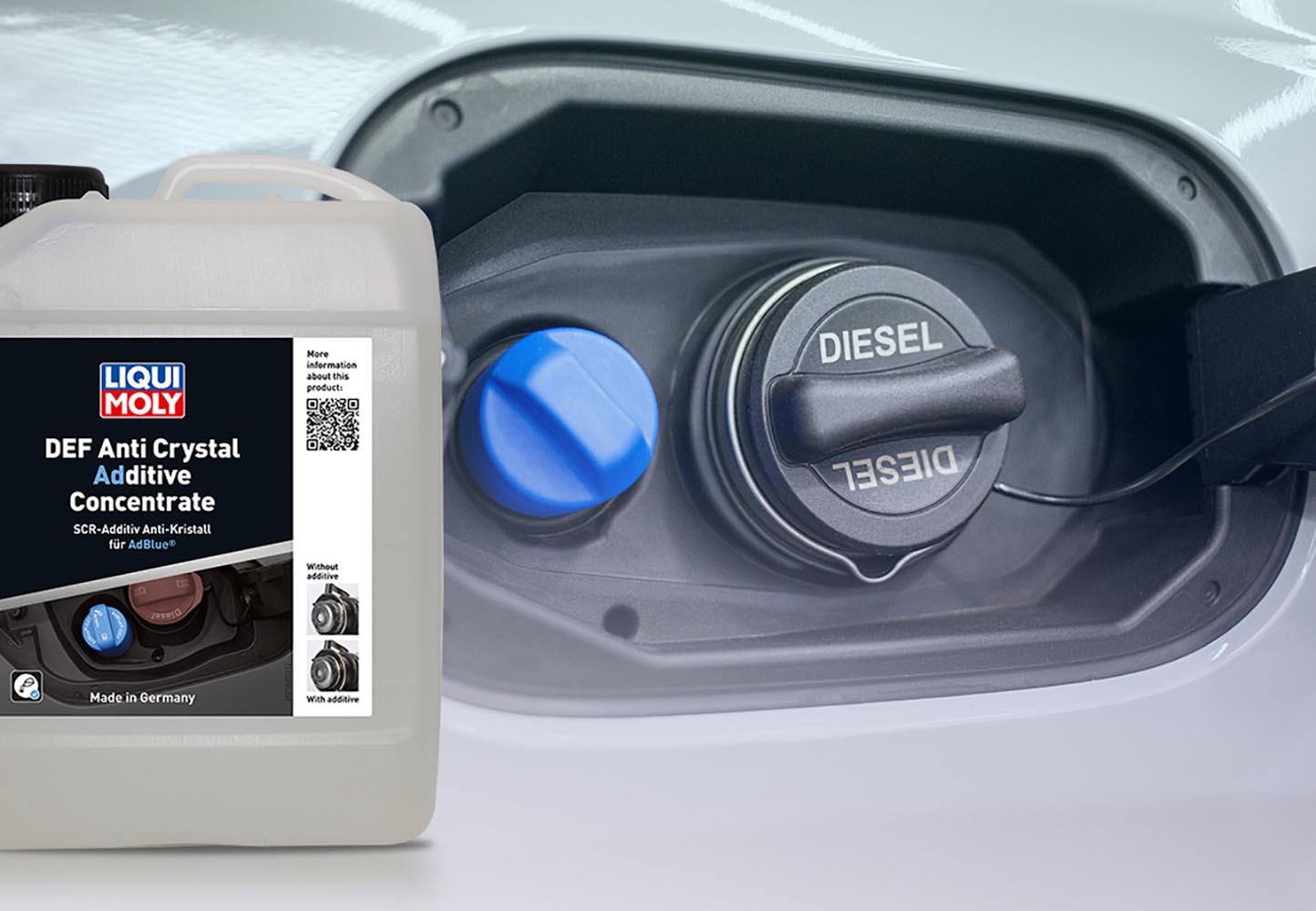
LIQUI MOLY launches additive protecting diesel exhaust systems
LIQUI MOLY announced a new additive called DEF Anti Crystal Concentrate. The additive protects modern diesel vehicles’ SCR exhaust treatment from damage related to AdBlue® urea deposits.
Selective catalytic reduction (SCR) in diesel vehicles is an advanced active emissions control technology system that reduces nitrogen oxide (NOx) emissions by injecting a liquid-reductant agent through a special catalyst into the exhaust stream of a diesel engine. The reductant source is usually automotive-grade urea, commonly known as Diesel Exhaust Fluid (DEF).
When the DEF is injected into the exhaust stream, it vaporises and decomposes to form ammonia and carbon dioxide. Then, when the exhaust gases mixed with ammonia pass over the catalyst, the NOx is selectively reduced to nitrogen (N2) and water vapor (H2O), which are harmless to the environment. This process significantly lowers the emissions of NOx, a major air pollutant contributing to smog and air quality problems.
SCR technology allows diesel vehicles to meet stricter emission regulations without sacrificing performance or fuel efficiency. It is widely used in modern diesel-powered vehicles, including cars, trucks, buses, and heavy equipment, as part of their exhaust aftertreatment systems to comply with environmental standards such as Euro VI in Europe and Tier 4 in the United States.
While AdBlue reduces nitrogen oxide emissions to meet standards, it can leave deposits in exhaust systems that affect SCR performance. “Residues can form because a liquid film forms on the exhaust pipe surface, where the water evaporates faster than the urea can decompose,” says David Kaiser, Head of Research and Development at LIQUI MOLY.
“The additive lowers the temperature to achieve the so-called Leidenfrost effect. This phenomenon promotes residue-free decomposition of the AdBlue® solution. The Leidenfrost effect reduces the formation of a liquid film on the exhaust surface,” Kaiser says.
By lowering AdBlue’s freezing point, the additive also prevents issues from cold temperatures, he says.













